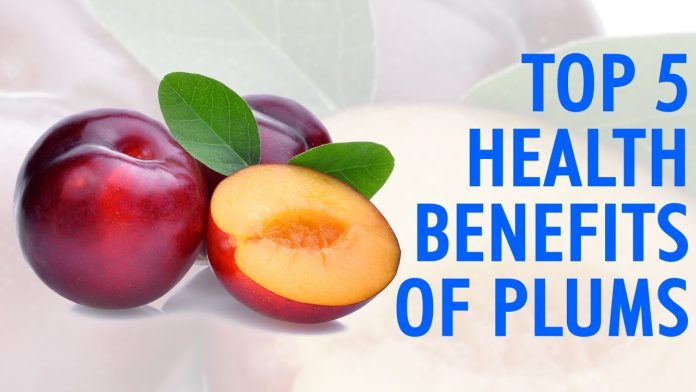Top 5 health benefits of plums
What are plums?
Plums are a medium-sized fruit that’s native to countries such as Italy, China and Mexico. There are over 100 varieties of plums, with the most popular taste being those with dark purple-red skin and yellow flesh inside. ‘Prunus domestica’ is what they’re commonly called when they’re dried, or dried prunes are known as fruit prunes. Plums are in season everywhere in the UK during August and September.
Nutritional benefits
- •An 80g serving of protein contains:
- •29 calories / 124 calories.
- •0.5 grams of protein
- •grams of fat
- •7 grams of carbohydrate
- •Seven grams: 1.7g Fibre
- •192mg of Potassium
The “five-a-day” is a common maxim that many people think they need to get to stay healthy, with most food groups usually coming from two fruits. Check out our printable infographic to find out what counts for your five a-day and how much you should be getting each day.
Top 5 health benefits
1. Rich in antioxidants
Plum is a fruit with antioxidants which are especially rich in the compounds called anthocyanins, which help to prevent damaging effects from damage caused by other chemical reactions. Plum has also been found to have higher levels of these protective compounds than fruits such as nectarine and peach.
2. May have anti-inflammatory properties
Jiaobie Xu, a University of Illinois at Chicago professor, discovered that the protective plant compounds in plums have anti-inflammatory properties that may help prevent diseases such as cancer and diabetes.
3. May help manage blood sugar levels
It appears that plums are high in a chemical compound called chlorogenic acid, which is also found in the coffee. This helps balance your blood sugar levels and regulate your appetite – the fruit also has plenty of natural fiber which helps slow the release of its sugars.
Plums are rich in a polyphenol called chlorogenic acid – a compound also found in coffee. This appears to help balance blood sugar and regulate appetite. It’s important to consume the whole fruit to benefit from its fiber content, which will slow the release of its natural sugars.
4. May support heart health
Plums have been widely known to be rich in a variety of nutrients, providing calcium and other related heartsiness ingredients. They also contain potassium and vitamin C, as well as their beneficial polyphenols, which all increase cardiovascular health risk factors.
Plums are rich in a variety of vitamins and minerals, which ensures blood clots exist normally. They also provide potassium, vitamin C, and many other types of nutrients that are associated with reduced risk factors for cardiovascular problems.
5. May enhance cognitive function
We shouldn’t ignore the incredible potential of innovating this beautiful fruit. Which might be partly why science believes it may help offset age-related cognitive decline.
While it is not yet proven that plums have protective properties against age-related cognitive decline, some animal studies suggest they may be able to facilitate the brain’s phospholipid repair.
Are plums safe for everyone?
Peach allergies fall into the ‘birch pollen’ category, along with apples and plums. Some people will experience itching and swelling in their mouth or throat if they are exposed to this allergen. Symptoms normally develop within minutes of exposure, so you should keep an eye out for changes as this can sometimes develop into an allergic reaction known as anaphylaxis.
Some people are allergic to plums. They fall into the ‘broad-spectrum’ category of allergies, with examples including foods such as apples, peaches and other fruit. Those who are affected often experience itching or swelling of the mouth or throat, along with other symptoms such as increased mucus production and watery eyes.




